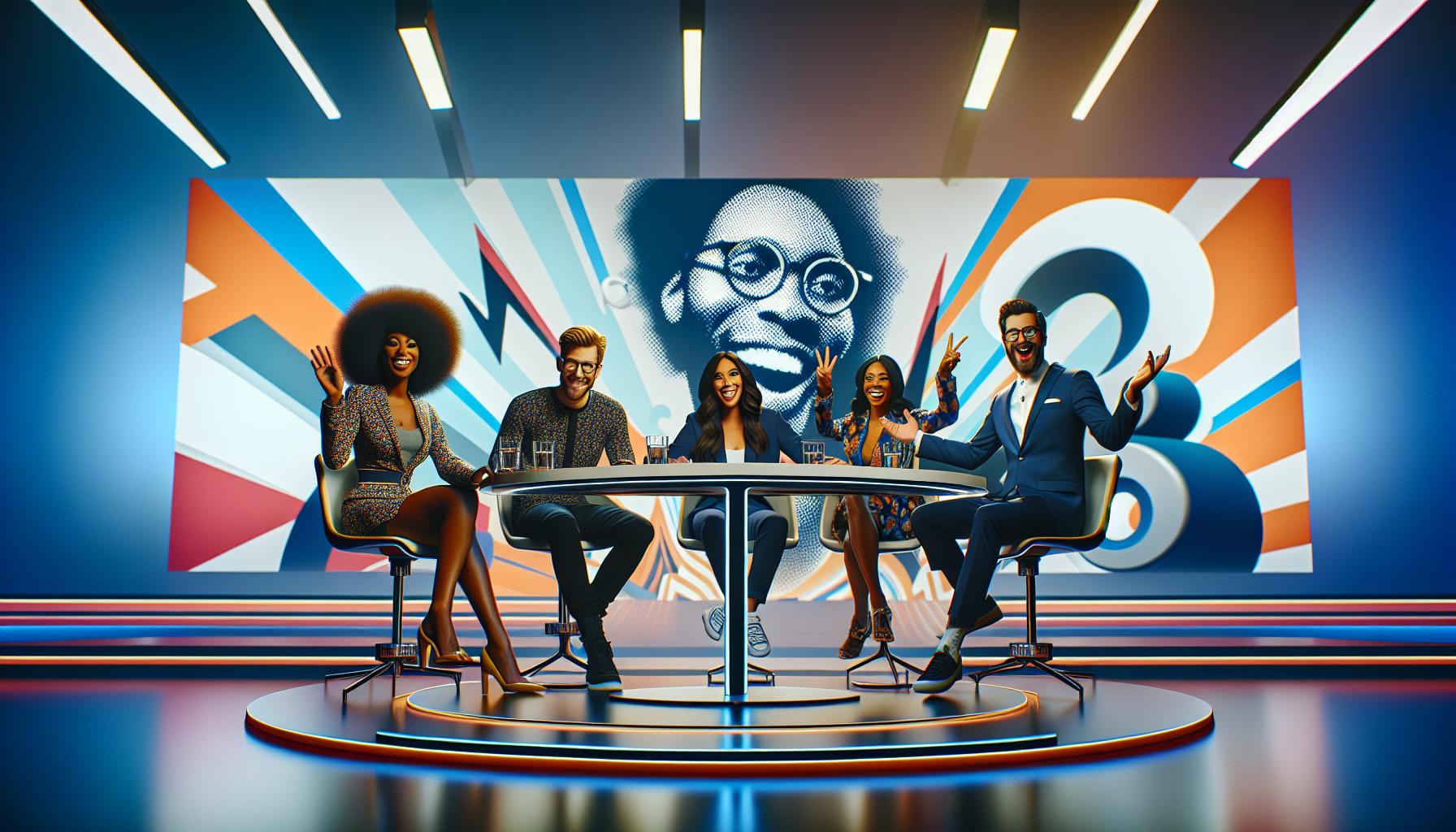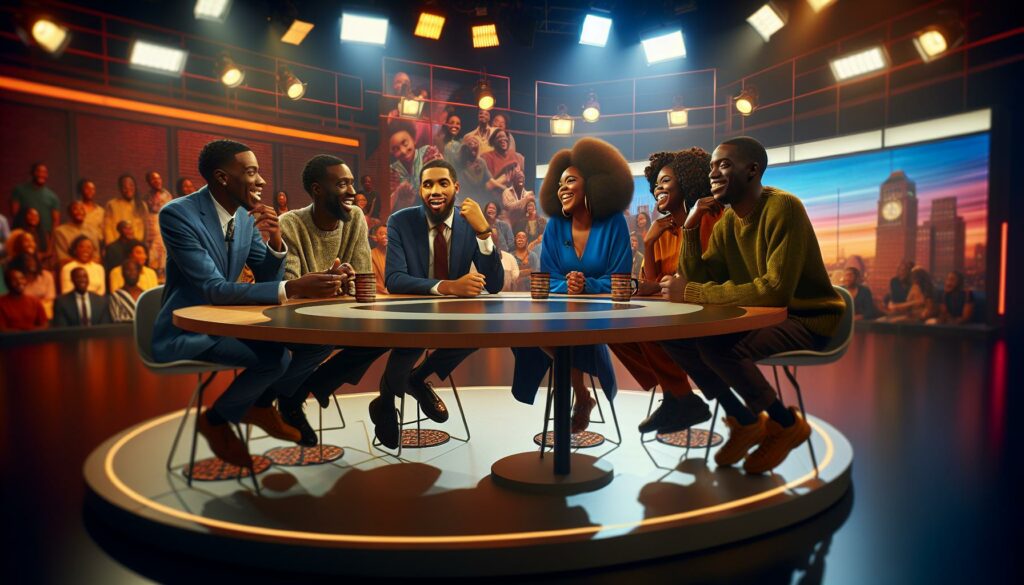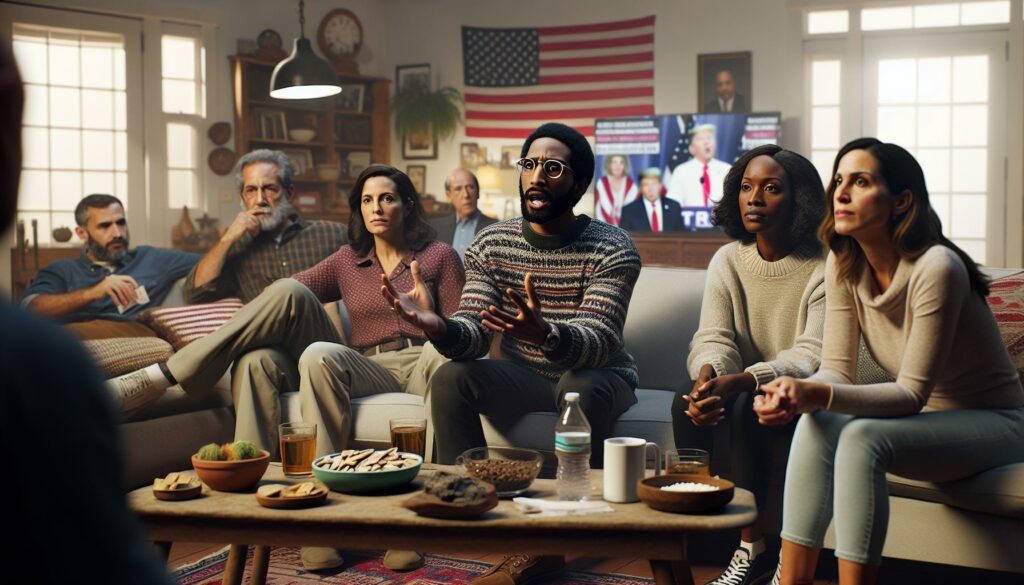Black talk shows have carved out a unique space in the television landscape, blending humor, culture, and candid conversations like no other. From the iconic late-night staples to daytime gems, these shows not only entertain but also challenge societal norms and spark crucial discussions. They bring a refreshing twist to the talk show format, proving that laughter and insight can go hand in hand.
Black Talk Shows
Black talk shows play a crucial role in the media landscape, offering a platform for diverse voices. These shows highlight everyday experiences and address complex social issues. Comedian and host Trevor Noah examines political topics on “The Daily Show,” blending humor with insightful commentary.
Daytime shows like “The Ellen DeGeneres Show” and “The Tamron Hall Show” focus on uplifting stories and celebrity interviews, connecting viewers with relatable content. Diverse perspectives contribute to genuine conversations about race, identity, and community matters.
Late-night formats, such as “The Tonight Show Starring Jimmy Fallon,” often feature Black guests who bring unique viewpoints. Shifting the focus, “The Late Show with Stephen Colbert” showcases comments on current events and cultural shifts through a Black lens.
A significant aspect of these shows is their emphasis on representation. When Black hosts engage their audiences, they create a sense of belonging and authenticity. Programs like “Soul Train” from the 70s and 80s laid the groundwork, merging music with cultural dialogue, influencing future talk show formats.
In today’s landscape, shows like “Red Table Talk” delve into personal issues within the Black community. Not only do they facilitate open discussions, but they also empower individuals by sharing their stories. Viewers appreciate this honest dialogue, recognizing the importance of vulnerability in addressing societal challenges.
With a mix of laughter, insight, and cultural discourse, Black talk shows impact society significantly. They serve as a tool for education and awareness while providing entertainment. Audiences often turn to these platforms for not only enjoyment but also enlightenment on crucial topics.
Key Features Of Black Talk Shows

Black talk shows significantly contribute to the cultural landscape of television. These programs reflect diversity while promoting conversation around crucial societal issues.
Cultural Representation
Cultural representation remains a cornerstone of Black talk shows. Shows like “Soul Train” and “The Breakfast Club” highlight Black artists and voices, integrating music and culture in meaningful ways. The focus often includes authentic narratives discussing Black experiences. Through storytelling, these shows create relatable content that resonates with audiences. Unique perspectives offered by hosts deepen the connection to community issues. This representation empowers individuals by showcasing successes and struggles, fostering a sense of pride and belonging.
Audience Engagement
Audience engagement forms an essential element of Black talk shows. Interactive segments invite viewers to participate, enhancing viewer connection. Platforms like “Red Table Talk” tackle sensitive topics while fostering open dialogue. Hosts encourage audience participation through social media, creating a sense of community. Discussions often revolve around personal experiences, making the content relatable and impactful. In addition, live audience responses add energy, enriching the overall viewing experience. Engaging formats build loyalty, driving viewership and encouraging ongoing conversations around critical topics.
Impact On Popular Culture

Black talk shows significantly shape popular culture by setting trends and fostering open discussions. Their influence extends beyond entertainment, impacting media formats and cultural conversations.
Influence On Media Trends
Innovative formats emerge from Black talk shows, often inspiring mainstream programming. These shows regularly blend humor and serious discourse, encouraging other media outlets to adopt similar styles. Interactive segments captivate audiences, prompting networks to engage viewers through social media platforms. Platforms like “The Breakfast Club” demonstrate effective use of interviews that spark viral discussions, creating templates for various popular podcasts and web series. Consequently, Black talk shows play a pivotal role in redefining entertainment and media narratives.
Promoting Black Voices
Variety of perspectives enriches dialogues on Black talk shows, amplifying diverse voices. These platforms provide critical spaces for discussions on race, identity, and culture, ensuring representation in mainstream media. Prominent figures like Tamron Hall and Trevor Noah highlight their unique experiences, fostering deeper connections with audiences. By prioritizing stories from the Black community, these shows encourage empowerment and visibility. Through increased representation, Black talk shows inspire future generations to share their narratives and contribute to cultural dialogues.
Notable Black Talk Shows

Black talk shows play an essential role in shaping cultural conversations. They provide spaces for diverse voices, addressing both entertainment and pressing societal issues.
Historical Context
The landscape of Black talk shows dates back several decades. “Soul Train,” launched in 1971, combined music and cultural discussions, becoming a pivotal platform for Black artists. Another influential series, “The Arsenio Hall Show,” aired in the early 1990s, showcasing notable Black figures and popularizing many cultural trends. Programs like these not only entertained audiences but also challenged racial dynamics in media. By amplifying Black voices, they paved the way for future generations to express their experiences openly and authentically.
Contemporary Examples
Current Black talk shows continue this rich legacy, addressing contemporary issues. “Red Table Talk” stands out for its intimate discussions on mental health, relationships, and societal challenges. The show features guests from various backgrounds, fostering dialogue that resonates with viewers. Another prominent example, “The Breakfast Club,” is known for its incisive interviews, often igniting widespread conversations. Both programs highlight influential voices while encouraging audience interaction through social media. These modern offerings shape how cultural narratives are communicated, ensuring diverse perspectives remain at the forefront.
Vital Role in Shaping Cultural Narratives
Black talk shows play a vital role in shaping cultural narratives and fostering community engagement. They provide a unique platform for diverse voices and spark essential conversations about race and identity. Through humor and insightful dialogue, these shows challenge societal norms and empower audiences to share their stories.
As they continue to evolve, Black talk shows remain influential in popular culture, inspiring new formats and trends. Their commitment to representation ensures that critical issues are addressed while entertaining viewers. The legacy of shows like “Soul Train” and “The Arsenio Hall Show” lives on, proving that the blend of culture, humor, and open dialogue will always resonate with audiences.



